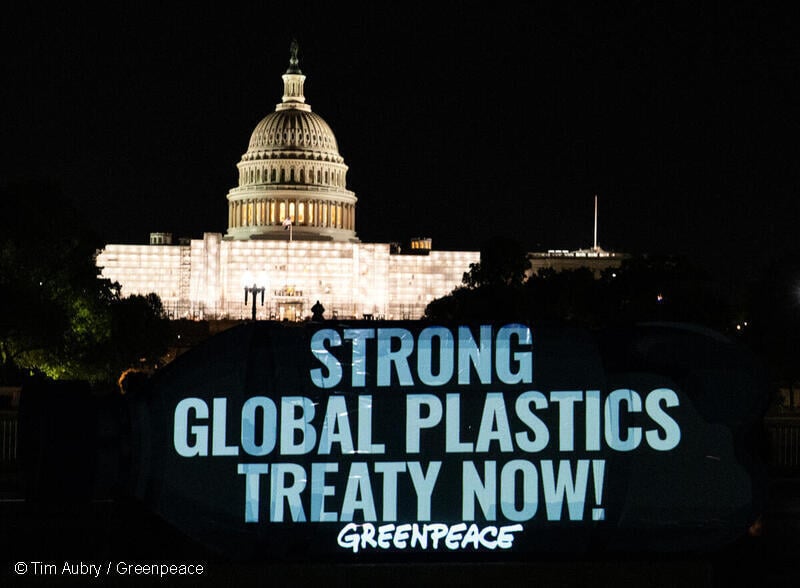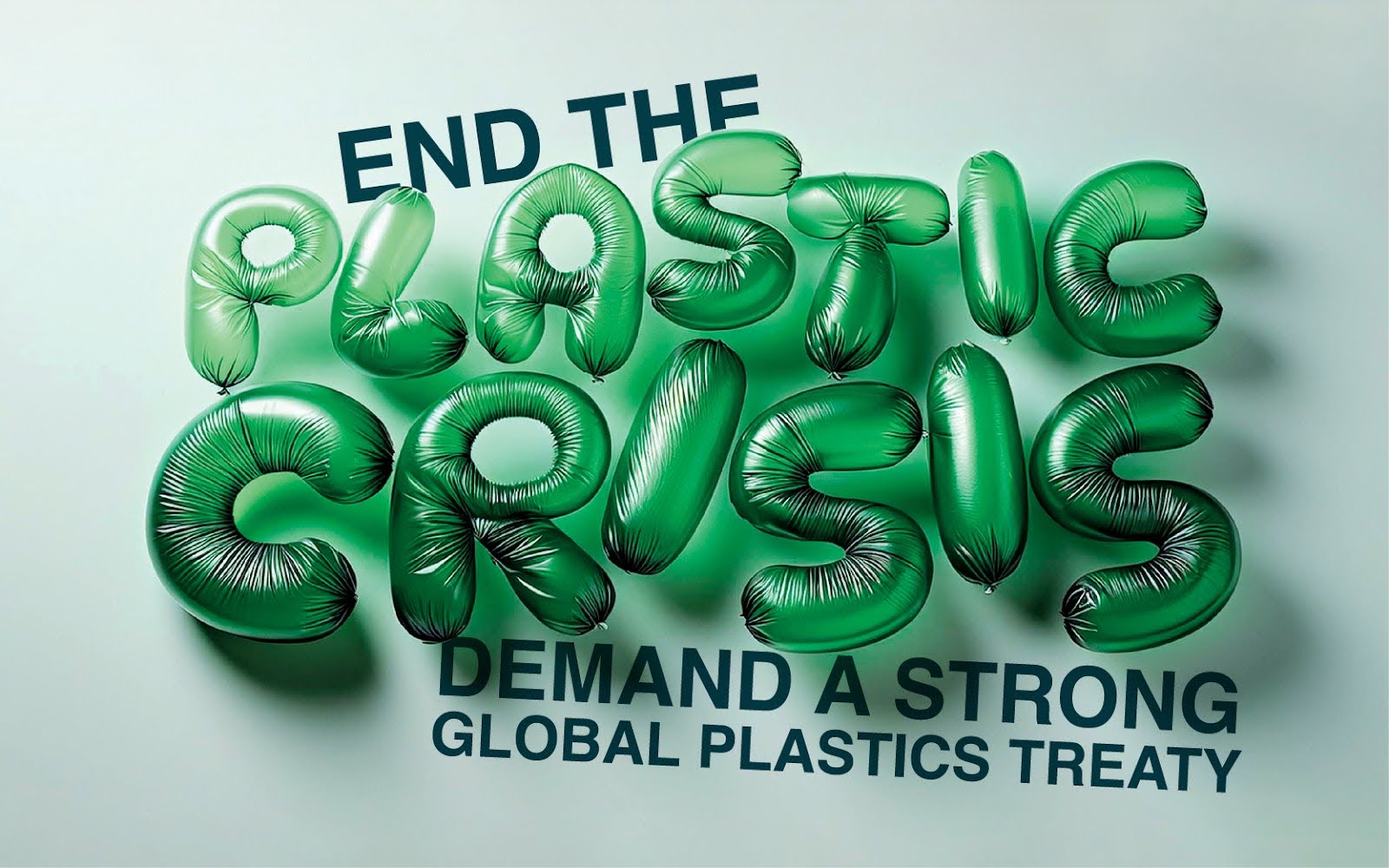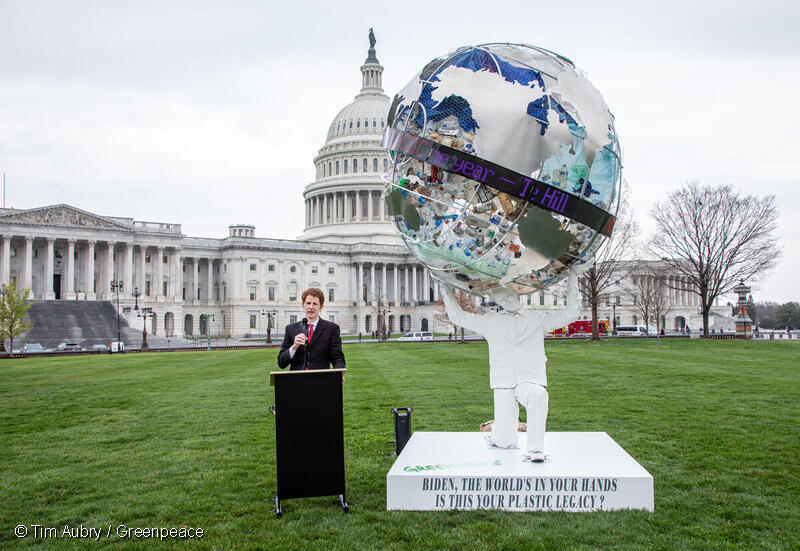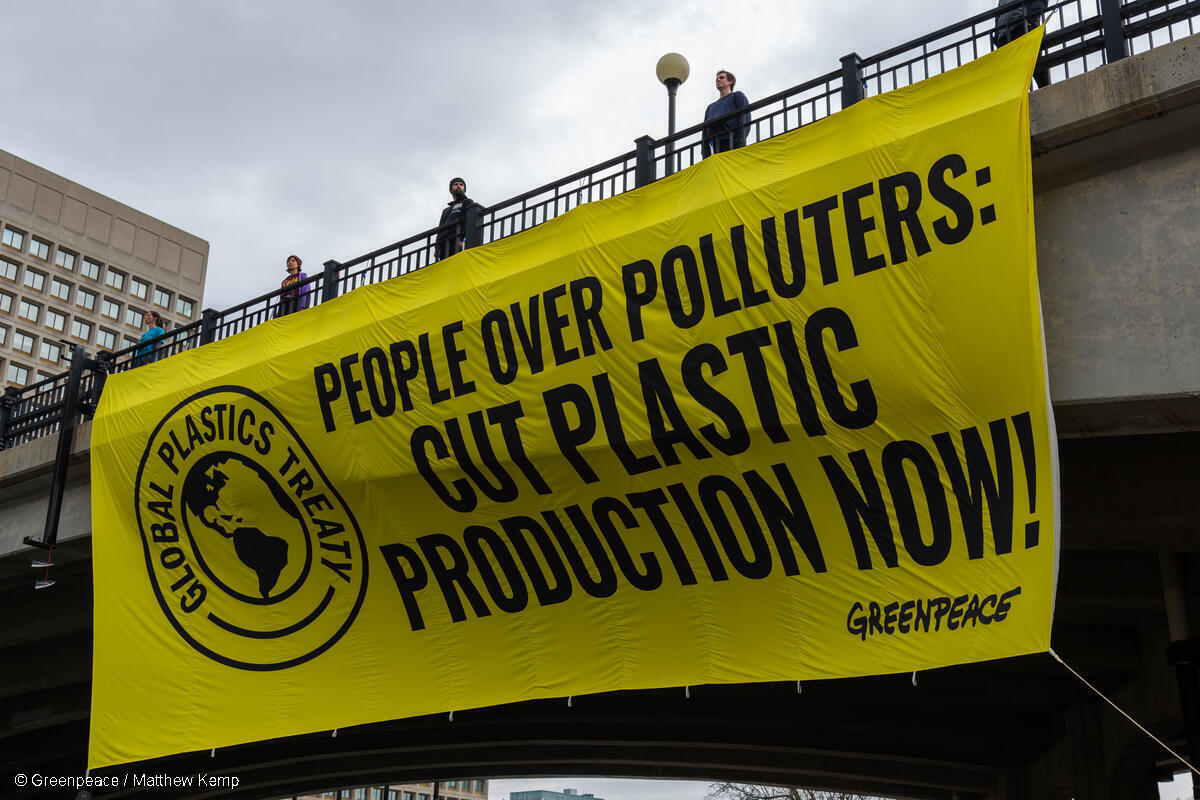
25 September 2024, New York, USA: At the sidelines of the United Nations General Assembly, currently happening in New York, USA, the High Ambition Coalition (HAC) to End Plastic Pollution released a Ministerial Joint Statement for the fifth Intergovernmental Negotiating Committee (INC5), which will take place in Busan, South Korea on November 25 to December 1, 2024.
In the declaration, the HAC reiterated its commitment to finalizing the treaty negotiations later this year and called for “a clear path to ending plastic pollution, including on reducing production and consumption of primary plastic polymers to sustainable levels.” As the final round of negotiations approaches rapidly, the HAC must demonstrate how it will deliver its commitment to a global reduction target scientists and civil society have warned is needed to end the plastic crisis and ensure a just transition.
In response, Graham Forbes, Greenpeace Head of Delegation to the Global Plastics Treaty negotiations and Global Plastics Campaign Lead for Greenpeace USA, said:
“The High Ambition Coalition should be true to its name and push for a global reduction target in Busan. We need a strong agreement that will match the scale of the crisis—the Global Plastics Treaty must cut plastic production by at least 75% by 2040. The health, environmental and climate impacts of plastic pollution are getting more extreme, and weak, non-binding targets or a half-baked treaty will not cut it. Our world leaders, especially those in the HAC, must show courage in Busan and choose people and the planet over the fossil fuel industry’s ruthless quest to produce more plastics for short-term profits.”
The United States, which is not part of the HAC, recently announced its support of a global treaty to limit the amount of plastic produced yearly, including global criteria for phasing out harmful chemicals and avoidable plastic products. Global plastic production doubled from 2000 to 2019, reaching 460 million tonnes (Mt) per year. Without action, it is anticipated to nearly triple by 2050 and consume 13% or more of Earth’s remaining carbon budget.
American leadership remains critical to delivering a strong Global Plastics Treaty as the beleaguered petrochemical industry has continued to exert pressure on the development of legislation at the national and multilateral levels that would favor maintaining current production levels while pushing false solutions such as chemical recycling and jeopardizing the climate. A new analysis from CIEL reveals the planned US petrochemical expansion could add 153.8 MMT CO2e emissions every year, representing a 38% increase amounting to more than all of US commercial aviation.
The American Chemistry Council (ACC) and other plastics industry lobbyists recently collaborated with US legislators to develop legislation that would worsen existing laws so that plastic incinerators could operate without meeting the environmental and health protections of the Clean Air Act. Under the guise of offering a “circular” solution to the global plastic waste crisis, they are seeking to rebrand pyrolysis and gasification incinerators as “chemical recycling” (also greenwashed as “advanced recycling”) even though the process is a decades-old proven failure that generates highly-toxic air pollution, including chemical cancer-causing dioxins.
The US Chamber of Commerce also recently submitted a letter to the Special Presidential Envoy of the Plastics Treaty Negotiation, John Podesta, and the Chair of the Council on Environmental Quality, Brenda Mallory, expressing concerns about the Administration’s plans to support production reduction targets and urging them to focus instead on “eliminat[ing] plastics entering the environment.” Such efforts to limit the scope of the treaty to insufficient end-of-life measures rather than a full lifecycle approach come as no surprise as the Chamber’s Senior VP of Policy, Martin Durbin, has previously served in senior positions with the American Chemistry Council and the American Plastics Council, two of the biggest lobbyists for the plastics and petrochemical industries.
On Monday, California Attorney General Rob Bonta announced that the state has sued ExxonMobil, a member of the ACC, for a decades-long deception campaign that overhyped the promise of recycling and spawned a plastic pollution crisis.
Forbes continued: “With plastic production set to triple by 2050, the world cannot afford half-measures or corporate-driven false solutions. The US must demonstrate leadership in this final stretch of the negotiations to ensure a treaty that includes binding global rules to cap and reduce plastic production, putting people and the planet above short-term petrochemical profits.”
###
Greenpeace USA is part of a global network of independent campaigning organizations that use peaceful protest and creative communication to expose global environmental problems and promote solutions that are essential to a green and peaceful future. Greenpeace USA is committed to transforming the country’s unjust social, environmental, and economic systems from the ground up to address the climate crisis, advance racial justice, and build an economy that puts people first. Learn more at www.greenpeace.org/usa.



